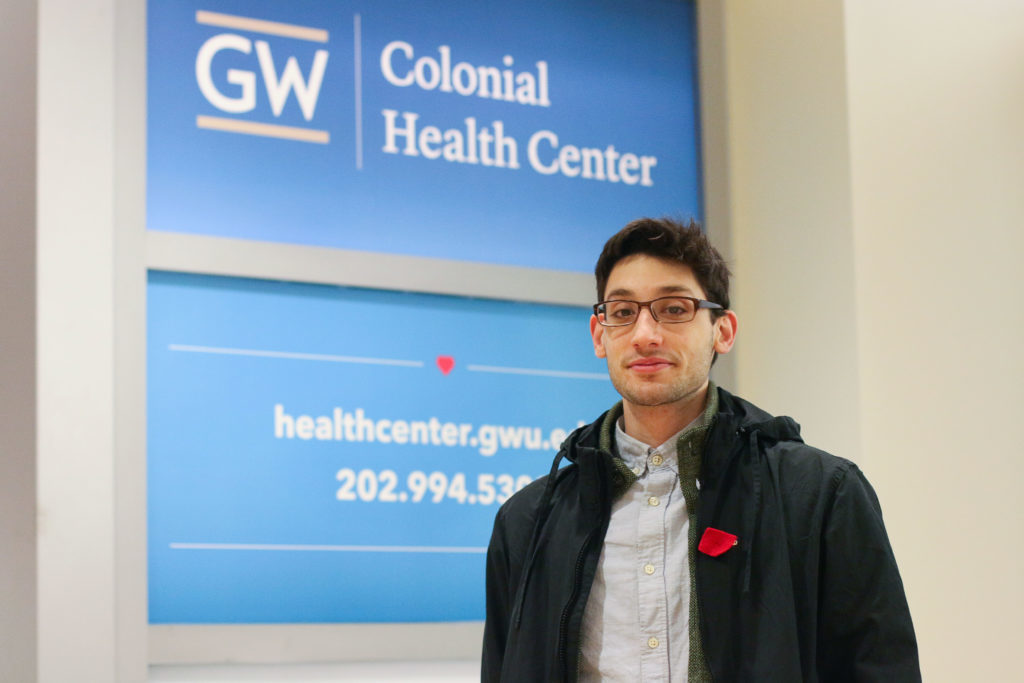The Student Health Advisory Council plans to host town halls focused on GW’s health care operations next semester – an overall effort to expand student involvement in the group after a quiet fall semester.
The council, which serves as a student forum to voice concerns about the Colonial Health Center and health care at GW, has met with CHC officials twice this semester, student leaders said. Student leaders said town halls hosted next semester will help officials identify and address students’ concerns about the CHC, like long wait times and high costs.
SHAC formed last year under the direction of the CHC’s former leader, Glenn Egelman, in partnership with the Student Association to include student voices in the health center’s decision-making process. The group went on a hiatus last fall after Egelman suddenly resigned but rallied in the spring semester to implement a slew of changes to student health care systems.
Noah Wexler, the director of student health policy for the SA and a member of the council, said the group has met with CHC officials twice this semester and is planning a third meeting early next semester to redesign the group as a pipeline for student feedback. He declined to say which CHC officials the council has been meeting with.
“The idea is that the council itself will be a little bit more fluid, and we hope to use this fluidity to attract students who have an innate interest in health policy at GW to make their voice heard,” Wexler said.
He added that some student organizations, like the Public Health Student Association, have asked to join the council, which would allow the group to reach a greater percentage of the student body.
“We want to understand it from a broader cross-section of the University – where students want to advocate and what issues students want to advocate around regarding health issues at GW,” Wexler said.
SA President Ashley Le, a member of the council, said the group’s expansion efforts are necessary to “move forward intentionally and efficiently” to address health-related concerns.
“As an advisory council, it is always important for a diversity of perspectives to be involved in the discussion so that SHAC can represent as many different communities as possible,” Le said in an email.
Reed Elman Waxham, the senior adviser to the SA and a member of the council, said the council has been meeting this semester to discuss plans to increase the number of students involved outside the SA. He said expanding student involvement will help provide the CHC with more feedback about issues with the CHC, affordable health care and health insurance policy.
“Expanding SHAC is important because we don’t want to presume what is important to students – we want to hear it from them directly,” Elman Waxham said in an email.
He said the group has not yet set dates for the town halls.
Cissy Petty, the dean of the student experience, said she did not personally attend SHAC meetings this fall, but appreciates “how much these students care and want to help their fellow students.” Two staff members in the CHC, which Petty oversees, attended the meetings, she said.
At the first meeting, the group spoke about the “accomplishments” of the council, like switching GW health insurance to an opt-out plan this fall. She said there was also discussion about how students and staff could work together to encourage immunizations.
Petty added that the second meeting included discussion about including more students in SHAC and expanding the council. She said she and her team think the town halls are a “good idea,” but she is waiting to hear students’ “vision” for the forum.
“Town halls are an important resource to be able to hear feedback from a cross-section of students,” Petty said. “I look forward to learning more about what the students would like to do next semester.”




